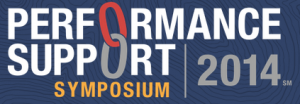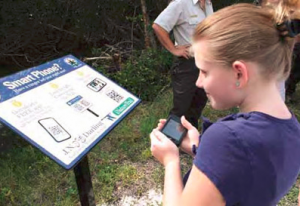The Importance of Adding Performance Support to the Mix
I’m often asked about what excites me most about the future of technology and organizational learning. My answer to that sometimes surprises people, because what excites me most about the future of technology and organizational learning is a decreasing emphasis on organizational learning.
That may sound strange, so let me add some context to that answer.
Learning is critically important. The idea of lifelong learning is something I’m greatly passionate about. I’m not saying organizational learning isn’t important; I’m saying learning alone isn’t enough in an organizational context.
I don’t really believe most organizations truly care about learning, at least not in a primary sense. Organizations care about performance, and enabling workers to do their jobs more effectively. The organizations that care about and culturally support learning don’t really do so because of some altruistic support of personal growth; they support learning because they see the connections between continuous learning and higher levels of worker performance. So if we start the conversation there – in a place where improving worker performance is the primary goal – then the umbrella under which we work as “Learning Professionals” expands dramatically.
I’ve always looked at classroom training, elearning, and other traditional types of learning experiences as being incredibly important foundations for learning. In the context of this post I’d like to focus on one word from that previous sentence: foundations.
When used appropriately, course-based models for learning are incredibly effective at helping people learn about a topic. I usually see these programs as foundational learning experiences as they create a knowledge and structure upon which a worker can stand when applying new skills. Most organizations do a good job or providing foundational resources that onboard a worker into a new or revised process. This training helps people understand how things work under common conditions.
The gap in that is that really effective work isn’t measured by how we perform in common conditions; it’s measured in how we deal with uncommon conditions and how well we handle exceptions to the norm. Training and elearning courses can’t really support this need. By the time a worker has to deal with an uncommon exception, there’s little chance of the worker being able to remember what they learned from a training experience weeks, months, or years earlier. What workers need in those moments is access to resources that can help them perform a task or solve the problem. In many cases the worker may not necessarily even need to retain the information about the solution – they simply need to receive the support needed to complete the required task in the moment.
The concept of Performance Support being used in situations like this is not entirely new. We have been using job aids, checklists, and other non-technical resources to help workers perform tasks in the moment for decades. However, in many ways the Performance Support conversation is new again. In recent years, technological advances like smart phones have opened the door to new and exciting opportunities for performance support.
We now have resources available to us that enable us to support people in their work without the need to interrupt work so that people can learn. The ability to support workers in the moment, as the need arises, with exactly the support needed related to the task is something that has not truly been accessible to learning professionals in the past. That’s why I say what excites me most about the future of technology and organizational learning is a decreasing emphasis on organizational learning.
Now technology makes providing real Performance Support a reality, with new solutions being created almost every day. Performance Support is accessible to just about any organization, small or large. It’s not a replacement for traditional training and learning methods; Performance Support solutions give us the ability to support work in ways we haven’t been able to before – in ways that traditional methods really can’t.
Most learning professionals face the same growing challenge. It’s a challenge that exists at the intersection of increasing need for workplace support, decreasing resources available to produce a solution, and pressure to make all solutions less disruptive to work. Performance Support tools can be an excellent resource to add to your tool set to address this problem.
 More and more organizations are seeing the benefits of performance support as part of an organizational learning and performance strategy. To hear their stories and learn how you can start or increase the usage of Performance Support solutions in your organization, consider joining us for this year’s Performance Support Symposium, taking place September 8 & 9 in Boston, Massachusetts. It’s the only event in North America focused on Performance Support, so if you’re interested in learning more, join us in Boston this September.
More and more organizations are seeing the benefits of performance support as part of an organizational learning and performance strategy. To hear their stories and learn how you can start or increase the usage of Performance Support solutions in your organization, consider joining us for this year’s Performance Support Symposium, taking place September 8 & 9 in Boston, Massachusetts. It’s the only event in North America focused on Performance Support, so if you’re interested in learning more, join us in Boston this September.



Leave a Reply